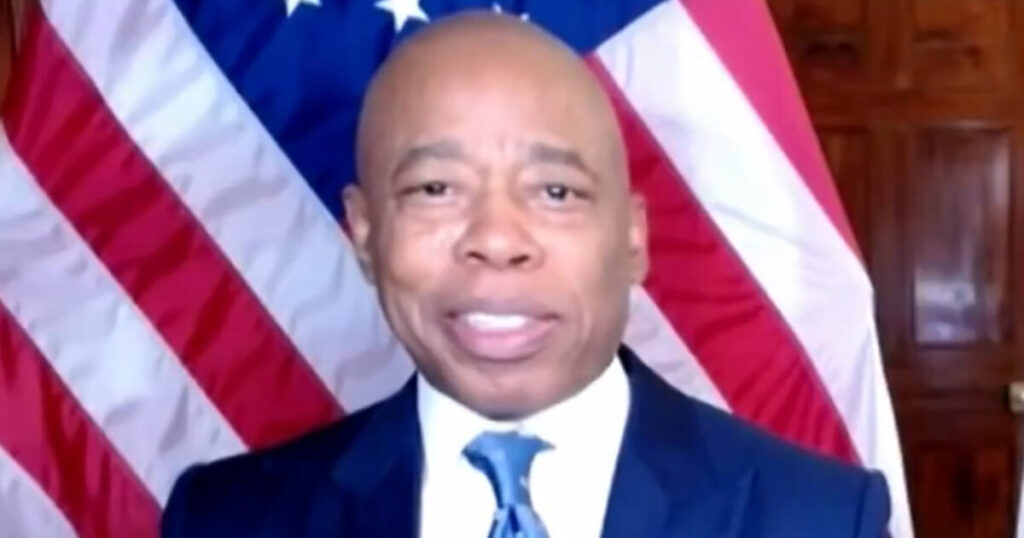In a recent interview, New York City Mayor Eric Adams, a Democrat, did not dismiss the possibility of rejoining the Republican Party, signaling a potential political shift as he expressed support for aspects of former President Donald Trump’s immigration agenda. Adams, who transitioned from the Republican Party to the Democrats in 2002, has adopted increasingly conservative stances on immigration in response to the persistent challenges faced by his city amid the ongoing border crisis. His remarks come in the wake of an investigation by the Department of Justice that has reportedly tied him to allegations of corruption involving foreign donations, following his criticism of President Biden’s immigration policies that he claims have overburdened New York City.
In a notable pivot, Adams announced his intent to collaborate with Tom Homan, Trump’s former Border Czar, indicating a clear alignment with tougher immigration policies. He expressed a willingness to meet with Homan to discuss strategies for addressing crime associated with illegal immigrants, stating, “Those who are here, committing crimes, shooting at police officers, raping innocent people, have been a harm to our country.” His determination to protect city residents appears to have reignited a discussion about his political loyalties, causing observers to scrutinize his motivations and whether this demonstrates a genuine ideological shift or a calculated political maneuver in light of the increasing pressure from constituents and party members alike.
Adams’ statements have ignited a considerable reaction on social media, with many questioning the integrity of his potential return to the Republican Party, suggesting he might not truly align with its values. Some critics perceive him as a “Republican in Name Only” (RINO), a term used disparagingly in political discourse to characterize Republicans who are viewed as insufficiently conservative or as opportunists. The concerns about his potential shift seem to stem from a wider narrative of political survival, with detractors arguing that he is merely seeking to align himself with a “winning team” following a perceived abandonment from the Democratic side due to his outspoken position against the Biden administration’s immigration policies.
Meanwhile, Adams maintains that his allegiance lies with what he terms the “American party,” positioning his identity as fundamentally tied to his commitment to the country rather than to either established political party. He highlighted his history of service in law enforcement, portraying himself as a protector of the city and its people. This characterization attempts to frame his potential party shift as one rooted in concern for public safety and citizenship rather than mere political opportunism, drawing a contrast with critics who suggest his motivations are self-serving in nature.
The political landscape in New York City, particularly under Adams’ administration, has been fraught with challenges, especially concerning immigration. As the city grapples with an influx of illegal immigrants, exacerbated by the current federal government’s policies, Adams is faced with the dual task of addressing public safety and navigating the political repercussions of his stance. His collaboration with Homan on deportation efforts demonstrates his commitment to tackling these issues head-on, as he seeks to reclaim the narrative surrounding immigration and crime in the face of significant public concern.
Ultimately, the question of whether Eric Adams will switch parties prompts a broader discussion about the shifting dynamics within American politics. His actions could signal a deeper divisiveness within the Democratic Party, particularly regarding issues of immigration and law enforcement. As he navigates these turbulent waters, his decisions will not only affect his political future but may also reflect the evolving attitudes of constituents who are increasingly wary of traditional party lines in pursuit of effective governance.

